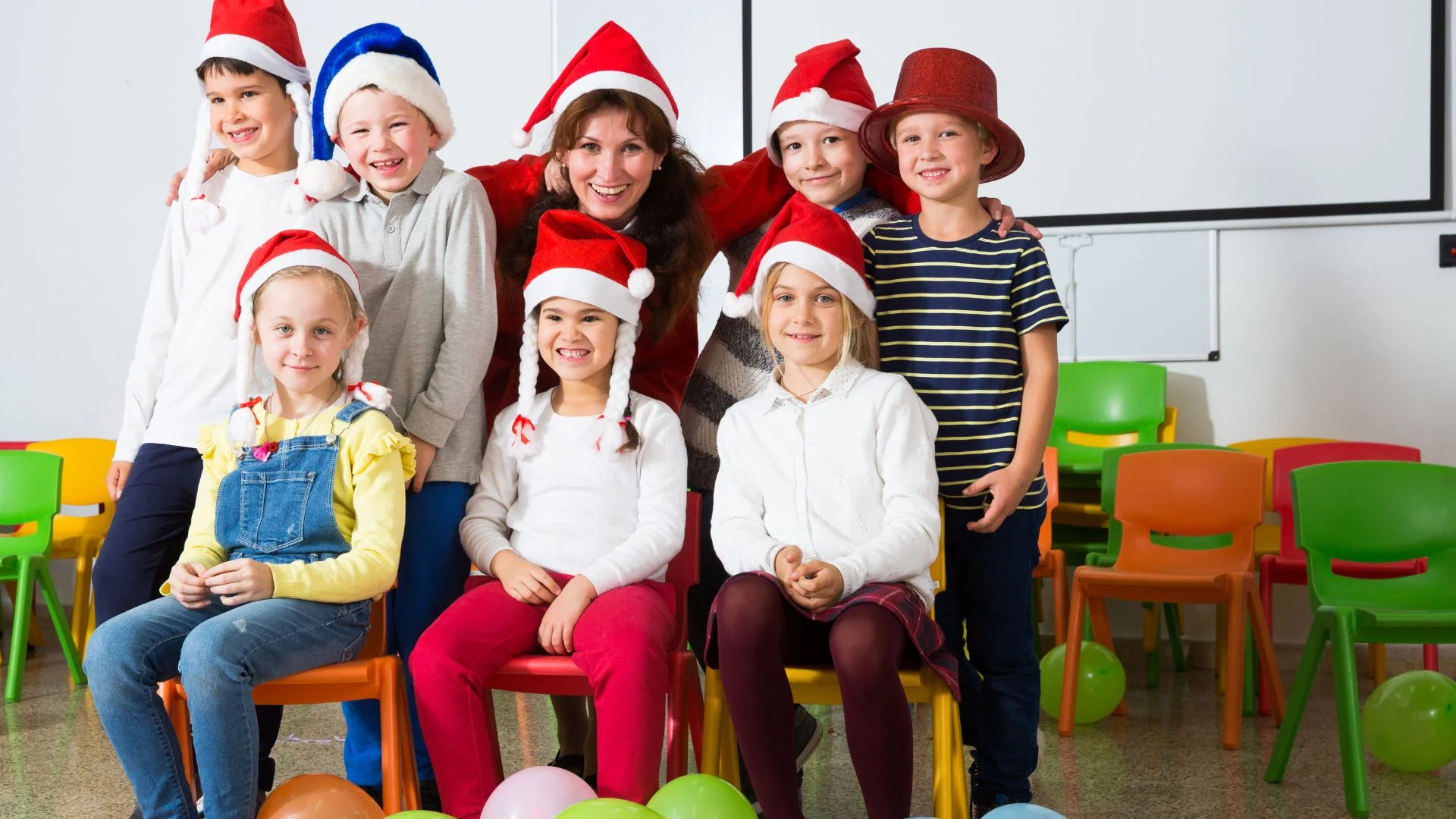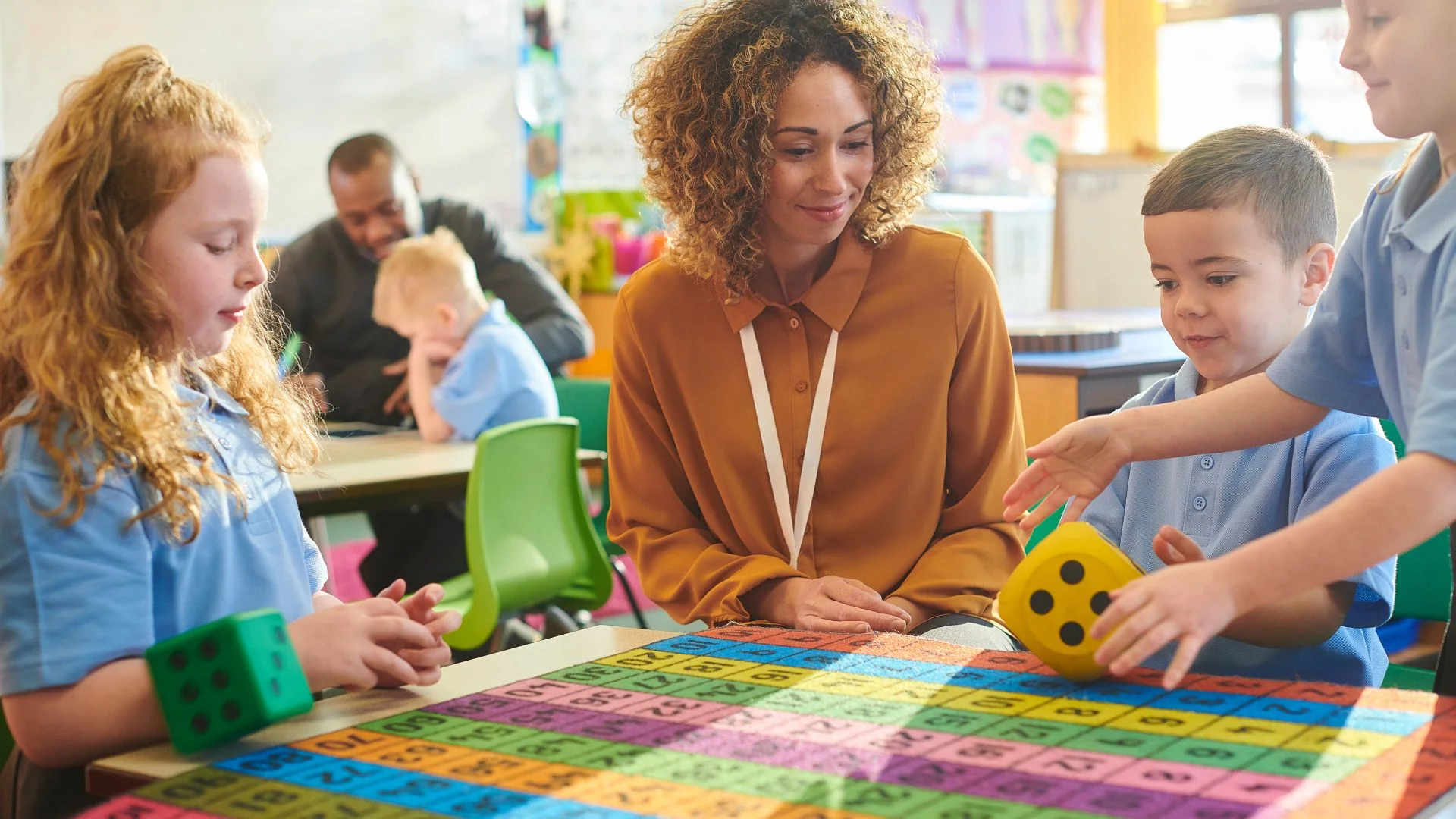How To Make Christmas More Inclusive for Neurodivergent Children
02 Oct, 20251-2 minutes
In this blog, you will learn:
- What Neurodivergence is.
- Why Christmas can be challenging for neurodivergent students.
- 9 ways to make Christmas more inclusive for neurodivergent students.
- Where the latest SEND Teacher jobs are and how to apply for them.
The Christmas season can bring sparkle and excitement to schools, but it can also create unexpected hurdles for students who experience the world differently. For neurodivergent children the noise, bright lights and schedule changes of December can feel overwhelming.
For SEND Teachers and SEND Teaching Assistants, the aim is to create a classroom where every student can enjoy the festive season without stress, exclusion or sensory overload.
To create a more inclusive and accessible Christmas experience, we’re sharing practical approaches to help all students enjoy a positive and festive season.
What is Neurodivergence?
The term neurodivergent describes people whose brains develop or function in ways that differ from what’s considered typical. This includes conditions such as Autism, ADHD, Dyslexia and Tourette Syndrome, among others.
Understanding neurodivergence enables Teachers to recognise that students have varying sensory needs, learning styles and reactions to change, especially during hectic periods like the festive season.
Why can Christmas be overwhelming for neurodivergent children?
The festive season can be exciting, but it often brings sudden changes. Bright decorations, louder classrooms, special assemblies and unexpected visitors can feel overwhelming for many students. For neurodivergent children, these shifts can be particularly intense.
According to NHS England, many autistic people also live with sensory sensitivities. Studies indicate this affects between 69% and 90% of individuals on the spectrum. These sensitivities mean that flashing lights, strong scents or loud Christmas music can quickly become overwhelming.
By recognising these factors, Teachers can plan sensory-friendly, inclusive activities to support neurodivergent students, so that Christmas remains joyful for everyone.
How can Teachers create an inclusive Christmas for neurodivergent children?
9 ways for Teachers to create an inclusive Halloween for neurodivergent children, include:
- Ease into festivities.
- Host a kindness countdown.
- Create a quiet carol corner.
- Embark on winter nature walks.
- Organise a flexible celebration timetable.
- Promote peer understanding.
- Adapt the school nativity.
- Hold a calm craft morning.
- Use personalised greeting projects.
Ease into festivities
Rather than transforming the classroom overnight, you could gradually introduce decorations over the course of a week. Add a garland one day, a string of lights the next and let students help choose or place each item.
We suggest taking a few minutes to talk about every change. What it is, why it’s there and how long it will stay. This slow build up not only reduces the risk of sensory overload for neurodivergent students, but also creates a calm sense of anticipation that all students can enjoy.
Host a kindness countdown
Instead of focusing only on presents and parties, why not channel some of the December excitement into acts of giving and gratitude? A ‘25 Days of Kindness’ board invites students to suggest and carry out small good deeds.
Each morning, the class could reveal a new act of kindness to complete that day. For example writing thank-you notes to school staff, making cards for a local care home, helping to tidy the playground or sharing a compliment with a classmate. Students could also vote on ideas, draw them from a jar or add their own as inspiration strikes.
This approach fosters empathy and generosity which are values that are essential to an inclusive Christmas.
Create a quiet carol corner
A full-school carol service can be thrilling for some students, but the crowds and musical instruments may feel overwhelming for neurodivergent children with sensory processing disorders. Instead, you might find it helpful to set up a quiet carol corner in your classroom or library where music can be enjoyed at a gentler pace.
Soft lighting, beanbags and low-level decorations can create a welcoming, sensory-friendly atmosphere. Small groups of students could rotate through the space to sing favourite festive songs, hum along or simply listen. Consider using simple percussion such as hand-bells, chime bars or soft shakers so students can join in without sudden, startling sounds.
This calm alternative keeps the joy of music while giving neurodivergent children more control. By offering a smaller, quieter setting, you allow everyone to experience the tradition of carols in a way that’s inclusive and comfortable for neurodivergent learners.
Embark on winter nature walks
If an indoor Christmas party seems too loud or overwhelming, consider opting for a peaceful winter nature walk instead. A short walk around the school grounds or a carefully designed path through the playground can turn the holiday season into a peaceful and sensory-filled experience.
Before setting out, talk students through what they might see, hear, and feel, such as the crunch of frost underfoot or the shapes of bare branches. To enhance the walk, you could bring along clipboards for sketching or jotting down observations or create a simple scavenger list of textures and colours to find.
This structured outdoor activity offers gentle sensory stimuli without the intensity of crowded indoor celebrations. It also provides opportunities for mindfulness and quiet conversation, helping neurodivergent students regulate their senses while still sharing a seasonal experience with classmates. Back in the classroom, students could reflect by writing a winter poem, or sharing their favourite moments from the walk, extending the calm atmosphere into the rest of the day.
Organise a flexible celebration timetable
Rather than holding one large celebration, we suggest spreading smaller festive activities across several days. Why not host a cosy film afternoon, a hot-chocolate break or a gentle craft session? Listing each mini-event on a visual calendar helps students know what to expect so they can decide which ones feel right for them.
This slower pace lowers sensory pressure and gives neurodivergent students the freedom to join the celebrations at their own pace, creating a calm and inclusive Christmas for everyone.
Promote peer understanding
You could consider setting aside some class time to explore how people experience Christmas in different ways. A circle-time discussion invites students to share their family traditions or listen as you explain why some classmates prefer quiet spaces or choose not to wear bright costumes. This encourages students that there is no right or wrong way to enjoy Christmas.
By fostering empathy and curiosity, you can help neurotypical students support their peers and create a classroom culture where everyone feels valued.
Adapt the school nativity
A nativity play can be magical, but the bright lights, long rehearsals, and large crowds may overwhelm neurodivergent students. To make the experience more comfortable, consider shortening the performance, dimming the lights and sounds and offering ear defenders along with a quiet seating area.
Recording the dress rehearsal or organising a smaller preview can benefit students who struggle with large crowds and loud noises. Additionally, behind-the-scenes roles, such as managing props or music, allow others to participate without being in the spotlight. These small adjustments keep the tradition special while making the nativity more comfortable and inclusive for every child.
Hold a calm craft morning
A calm craft morning can bring festive creativity into the classroom without overwhelming noise or bustle. Students might choose from activities such as salt-dough ornaments, felt garlands or paper stars, working at a pace that feels comfortable for them.
Providing a range of textures and clear, step-by-step instructions can create a sensory-friendly environment that benefits neurodivergent students. This approach also creates a relaxed space for the entire class to collaborate and craft something festive together.
Use personalised greeting projects
Why not invite students to share festive messages in the format that feels most comfortable for them? This could include hand-drawn cards, digital e-cards, short video or audio recordings, or textured collages.
Providing a variety of materials and creative approaches can create a calm, sensory-friendly environment that supports focus and reduces anxiety.
Whether the greetings are for family, school staff or the wider community, this flexible activity encourages creativity and self-expression while ensuring that every child feels included in the seasonal celebration.
SCG School Insights Report 2025
As specialists in education and SEND recruitment, we work closely with primary, secondary, and SEND schools throughout the UK and are mindful of the challenges that schools and teaching staff are currently facing.
In the School Insights Report 2025, we explore pupil experience and outcomes, key developments impacting the education sector, staffing and workforce trends, and the state of funding and resources in education. Read the SCG School Insights Report 2025 here.
SEND Teacher jobs
If you’re searching for your next SEND Teacher job, why not take a look at the latest teaching vacancies, or simply upload your CV to be notified when a relevant position becomes available.
Recruit SEND Teachers
As a specialist SEND recruitment agency, we support mainstream and SEND schools with their temporary, permanent and temp-perm staffing needs.
We currently work with hundreds of schools and have exclusive access to some of the best SEND Teachers and SEND Teaching Assistants in the North West.
If you’re struggling to fill a teaching vacancy, why not get in touch with one of our team to see how we can help?
- Primary schools - Jimmy Callagher
- Secondary schools - Liam Jones
- SEND schools - Jamie Heath
Meet Jamie Heath
Who is Spencer Clarke Group?
Established in 2017, we’re an award winning and progressive recruitment agency based in the heart of the North West. Our reputation is built on trust, expertise and an unwavering commitment to exceed expectations.
In 2025, Spencer Clarke Group was awarded Best Public/Third Sector Recruitment Agency and Best Temporary Recruitment Agency at the Recruiter Awards. In 2024, Spencer Clarke Group was also named Recruitment Agency of the Year.




